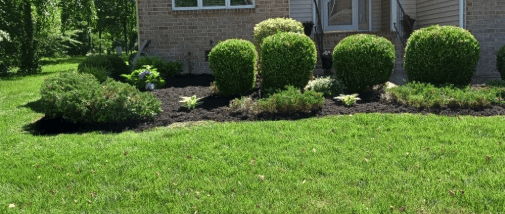Lawn Care Tips for Citrus Country
Caring for a lawn in citrus country—think Florida
4/16/20252 min read


Lawn Care Tips for Citrus Country: Keep Your Yard Thriving in the Heat
Caring for a lawn in citrus country—think Florida, Southern California, or parts of Texas—means dealing with sun, humidity, sandy soil, and unpredictable rainfall. If you want your lawn to stay healthy next to your orange trees, here’s what you need to know.
1. Choose the Right Grass
Warm-season grasses thrive here. Top picks include:
St. Augustine grass – Thick and shade-tolerant, good for residential lawns.
Bermuda grass – Handles foot traffic and loves the sun, but not great in shade.
Zoysia grass – Dense and drought-resistant, though slow to grow.
Bahia grass – Low-maintenance, does well in sandy soils.
Pick based on your yard’s sunlight, irrigation setup, and how much effort you want to put in.
2. Mow Smart
Don’t cut too short. Taller grass shades its roots and holds moisture better. For most warm-season grasses, aim to cut no more than one-third of the grass blade height at a time. This can be difficult once those daily summer rains start. Sharpen your mower blade regularly so you’re cutting—not tearing—the grass.
3. Water with Intention
Citrus country may get summer rain, but don’t count on it to be consistent. Your lawn needs about an inch of water per week. Water deeply and early in the morning to avoid evaporation and fungal growth. Since you are probably only allowed to water once a week it would be wise to soak the lawn pretty good. This will allow the water to get deeper into the ground and draw the lawns root system down with it. If your grass springs back when you step on it, it doesn’t need water yet.
4. Fertilize Wisely
Over-fertilizing can cause more problems than it solves—especially runoff into nearby water sources. Use a slow-release fertilizer made for your grass type, and follow your local extension office’s recommendations. In Florida, for example, fertilizer bans often apply during summer months.
5. Watch for Pests and Disease
Warm, humid environments are perfect for lawn pests. Watch for signs of chinch bugs, grubs, or fungal diseases. Yellow or thinning patches often signal a problem. Don’t guess—get a soil or turf sample tested if you’re unsure.
6. Respect Your Citrus Trees
If you have citrus trees in your yard, make sure you’re not overwatering the area around the root zone. Grass and trees can compete for nutrients and water. A mulch ring around the tree (not touching the trunk) helps reduce competition and retain moisture.
Final Thoughts
Lawn care in citrus country isn’t set-it-and-forget-it. But with the right grass, smart watering, and a little observation, you can have a lawn that’s as healthy and vibrant as your citrus trees.
Thanks for Visiting
Proudly Servicing Sugarmill Woods and surrounding areas since 2019. Locally owned.
Neighbor approved !
Contact US
Trust US WITH YOUR LAWN CARE NEEDS
(352) 247-2448
© 2025 Sugarmill Home Services. All rights reserved. | Reliable, Quality Services
